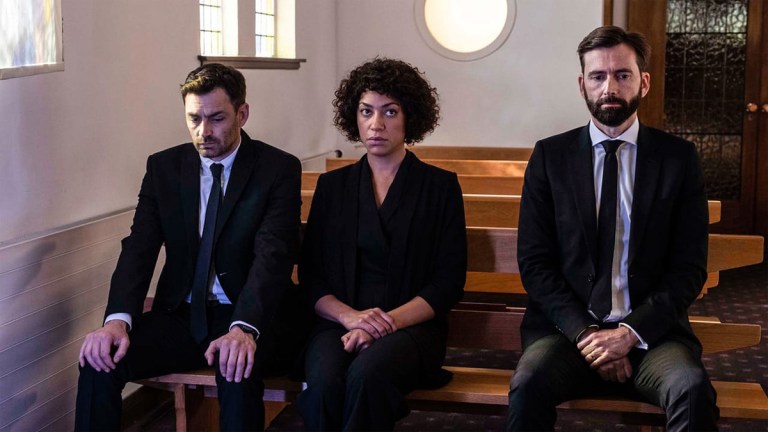Deadwater Fell episode 2 review: a sophisticated thriller playing a clever game
In part two, Deadwater Fell challenges the assumptions we leap to about victims and villains. Spoilers from the start…

This review contains spoilers.
It was easy wasn’t it? It went down smooth as butter, the idea that Tom killed his family. One shot of David Tennant fastidiously cleaning his fingernails plus a few dead-eyed looks to camera and we’d got Tom’s number; he’s an abusive control freak who’d as likely murder his children as look at you.
Oh, the brass neck of him. See the way Tom pushed Jess’ head against the door during sex? And his pattern of sexually preying on vulnerable women to isolate his wife from her female friends? Hear him calling Kate a prick on the beach and her crying herself to sleep about how unhappy she was? It all makes sense. We know the type. Seen it all before. It had to be him.
And besides, it’s always the dads isn’t it, the ones who do this.
Episode two of Daisy Coulam’s excellent thriller played a fine game with all of those prejudices and assumptions. Filtered through Jess’ perspective, it steadily fed our suspicion that Tom wasn’t a loving family man overawed by grief but a manipulative, dangerous psycho. Then, at the last minute, it threw that certainty into doubt and raised more questions.
The Tom suspicion didn’t take much feeding. The real-world conversation we’ve been mired in these past years about coercive control and abusive men did much of the work. The rest was done by David Tennant and his director Lynsey Miller, who pulled off the Magic Eye feat of presenting two characters simultaneously in one man – one wearing the hollow face of grief; the other wearing the empty detachment of psychopathy. Tennant is adaptable enough to convince as both.
The illusion switched back and forth throughout this quietly ominous hour. Was Tom performing or in pain? Displaying guilt or grief? Is that the handsome, sympathetic face of a grieving father or the callous, lifeless stare of a master manipulator? Alongside Jess, whose memory of his aggression during sex was jogged by Sasha’s testimony – a blurry, uneasy suspicion suddenly vindicated, passion becoming cruelty – we were steadily led to a place where Tom was undeniably a predator.
Those tense farmhouse scenes, with Natalie Holt’s sinister score framing him as a threat, were proof enough. Tom’s impatience with his mother, dropping that towel, invading Jess’ personal space as she tried to leave … all the classic behaviour of a man who intimidates and controls. Wasn’t it? That surety was kicked out from beneath with the revelation that Dylan lied in his witness statement, forcing us to recalibrate our assumptions and wonder how far we can really trust our instincts.
It may well turn out that Tom is an abusive liar who killed his family, but what’s dramatically of note at this stage is how easy it is to believe that about him. And specifically, how much easier it is to believe that than the idea that Kate was responsible. The assumptions we bring to Deadwater Fell are a key player in this game.
There are other options than Tom or Kate now, of course. Dylan – a troubled and woefully unreliable witness – is clearly more involved than previously thought. Was the shot of him playing with his cigarette lighter a hint or a red herring? Did he have an axe to grind with Tom? And what’s behind his hedonism and hostile relationship with his father, another GP?
There’s no shortage of questions (incidentally, spot the school blackboard in the back of the police interview scene, aptly covered in question marks? Perfect for a mystery thriller). With both Jess and Steve conducting their own investigations, the revelations will come tumbling now.
Read our review of the previous episode here.
And here are the other new British dramas on their way to television in 2020.
